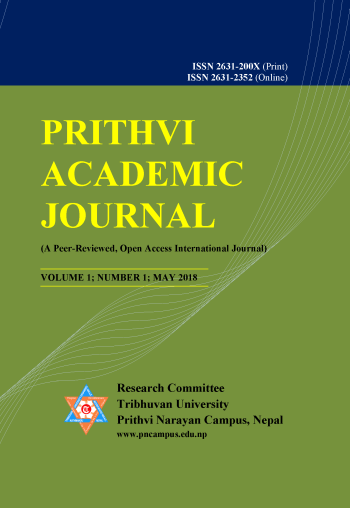The Cultural Negotiation: A Shift of Paradigm between First and Second Generation Immigrants in Lahiri’s The Namesake
DOI:
https://doi.org/10.3126/paj.v1i1.25903Keywords:
Acculturation, being, becoming, cultural identity, deculturation, diaspora, third spaceAbstract
Jhumpa Lahiri’s The Namesake explores the cultural negotiation of first and second generation Indian immigrants in America. They oscillate between two cultural spaces i.e. Indian and American searching cultural identity. This study makes an attempt to analyze the paradigm shift between the first and second generations in their cultural negotiation. Their experience of identity crisis, the process of assimilation in the host culture, the deculturation and acculturation processes, the reactions to the discriminatory practices and sense of belonging are examined. They are analyzed by using the theoretical concepts of Hall’s cultural identity and Bhabha’s third space. The cultural negotiation experienced by these two generations in diasporic hybrid cultural space renders fluid and unstable cultural identity. However, the differing approaches adopted by these two generations in their cultural negotiation results in diverse experiences.




